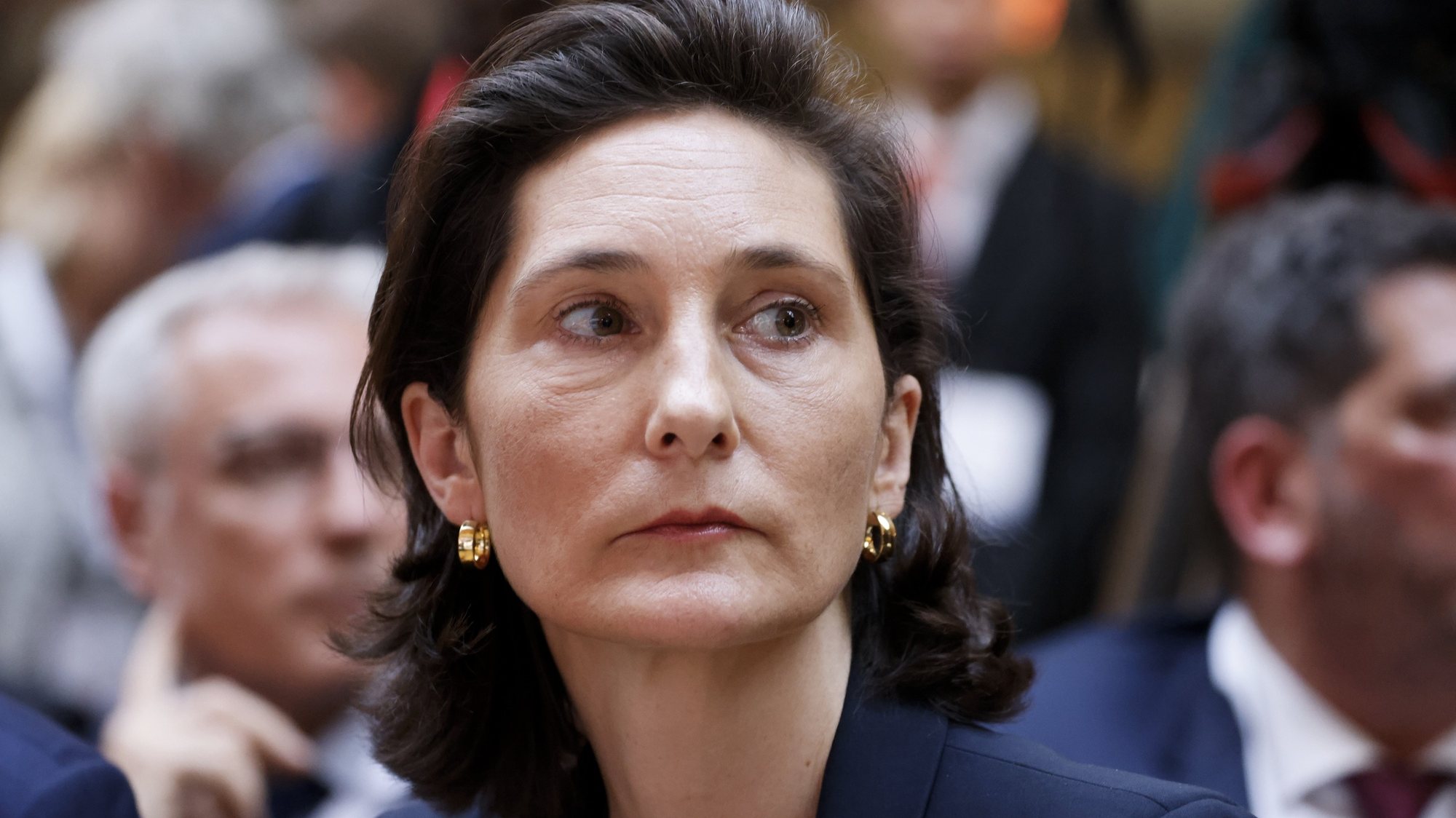The June 11 crossing of the Olympic flame in New Caledonia was canceled as the priority was to restore order in the French overseas territory, where violent riots left several dead.
The crossing of the Olympic flame scheduled for June 11 in New Caledonia was cancelled, as it was a priority to restore order in the French overseas territory, where violent riots left several dead, the Minister of Sports said today.
“I think everyone understands that, taking into account the context, priority must be given to consolidating the return to public order and then to appeasement,” Minister Amélie Oudéa-Castéra told the press, on stage at the World Cup. San Francisco. Maur-des-Fossés, near Paris.
“Priority to the safety of the inhabitants, priority to the return of calm and priority to the political improvement of the situation,” said the French minister, while violence related to the unrest continues today in New Caledonia, a French archipelago in the Pacific. South. with a sixth death in six days, according to authorities, and a situation “far from returning to calm”, according to the mayor of Noumea.
On Friday, French Prime Minister Gabriel Attal announced the cancellation of the Olympic torch passage through the archipelago in a meeting with deputies in Matignon, according to several coincident sources cited by the French news agency AFP.
The Olympic flame arrived with great pomp and circumstance on May 8 in Marseille, aboard the ship Belem, and was to cross the entire French territory, passing through French overseas territories, until finishing its journey on the banks of the Seine, on May 26. May, where he will light the cauldron at the opening ceremony of the Paris 2024 Olympic Games, the third Olympic Games in the capital of France, after those of 1900 and 1924.
“Everyone understands it, we would like to be able to share this moment,” although “until June 11, there may be some favorable events” in New Caledonia, said Amélie Oudéa-Castéra, responsible for the preparation of the Paris Olympic Games. referring to difficulties related to logistics and security.
“Be ready on June 11 [para a passagem da chama olímpica na Nova Caledónia], there is a whole countdown and prospecting, verification and screening operations that must be carried out. And the security forces, the military, are now busy restoring calm and order” in the territory, said the French Sports Minister.
These riots, the most serious recorded in New Caledonia since the 1980s, were triggered by an electoral reform promoted by Paris, which changed the census, taking away the weight of indigenous peoples, which outraged the independence supporters. There have been tensions in the archipelago for decades between the indigenous Kanaks, who want independence, and the descendants of the colonizers, who want to remain part of France.
On Wednesday, the National Assembly approved a bill that, among other changes, will allow New Caledonia residents to vote for ten years in provincial elections. Opponents say the move will benefit pro-French politicians in New Caledonia and further marginalize the indigenous Kanak people, who in the past have been subject to a policy of strict segregation and widespread discrimination.
Located east of Australia and ten time zones ahead of Paris, the vast archipelago that currently has some 270,000 inhabitants became French in 1853, under the command of Emperor Napoleon III, Napoleon’s nephew and heir. It became an overseas territory of France after World War II, and all Kanaks were granted French nationality in 1957.
In 1988 a peace agreement was concluded between the rival factions. A decade later, France promised to grant political power and broad autonomy to New Caledonia and organize up to three successive referendums. The three referendums were held between 2018 and 2021, with the majority of voters choosing to remain part of France, rather than supporting independence.
The pro-independence Kanak people rejected the results of the last referendum of 2021, which they boycotted because it was held at the height of the Covid-19 pandemic.
Source: Observadora
